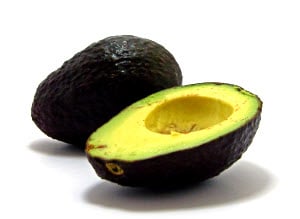Can Vitamin E Increase Sperm Count?

Poor Sperm Quality vs. Low Sperm Count
Over 90 percent of male factor infertility is caused by sperm abnormalities, such as poor sperm quality and low sperm count. Poor sperm quality can refer to low motility (movement) or abnormal sperm morphology (unusual shape), while low sperm count is characterized as less than 20 million sperm cells per milliliter of semen. Sperm abnormalities arise during the development of mature sperm cells, a process called spermatogenesis1 (Sigman et al. 2009. Infertility in the Male). This is a complex process requiring cooperation between different cells types, adequate production of sex hormones, and the presence of certain nutrients. There are several options for increasing sperm count such as Serophene (clomid). One natural micronutrient shown to be essential for healthy sperm production is vitamin E.
How Do Anti Oxidants Help Sperm?
Vitamin E actually refers to a family of eight antioxidants, known as tocopherols, which protect the body against free radicals. Free radicals are organic molecules that form in the body during oxidation. They are unstable molecules that are off balance because they do not have an even number of electrons. Essentially they are always trying to “steal” an electron from another molecule, thus damaging other cells in the process. Unless neutralized by antioxidants, free radicals can impact the health of your sperm.
Sperm development is a continuous and delicate process, and sperm cells are especially vulnerable to the damaging effects of free radicals. Antioxidants and vitamin E have been shown to be essential for sperm health, and several clinical studies show that men who consumed these micronutrients had improved sperm count and motility2 (Ahmadi et al. 2016. International Journal of Reproductive Biomedicine).
Vitamin E Rich Foods
Because oxidation happens continuously, it is essential you consume vitamin E-rich foods on regular basis. Vitamin E-rich foods include: sunflower seeds, fortified cereals, almonds, hazelnuts, spinach, kale, avocado, broccoli, and sunflower, safflower and soybean oil. You may also take a Vitamin E supplement.
#### References 1. Sigman M, Lipschultz LI, Howards SS. 2009. Office evaluation of the subfertile male. In: Lipschultz LI, Howards SS, Niederberger CS, editors. Infertility in the Male. 4th Edition. New York (NY): Cambridge University Press. Chapter 10. https://www.cambridge.org/vi/academic/subjects/medicine/obstetrics-and-gynecology-reproductive-medicine/infertility-male-4th-edition?format=HB&isbn=9780521872898#contentsTabAnchor 2. Ahmadi S, Bashiri R, Ghadiri-Anari A, Nadjarzadeh A. 2016. Antioxidant supplements and semen parameters: An evidence based review. International Journal of Reproductive Biomedicine. 14(12):729-736. https://pubmed.ncbi.nlm.nih.gov/28066832/






